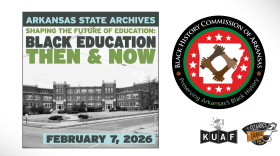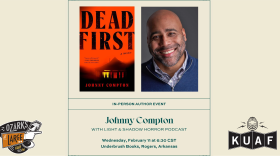SCOTT DETROW, HOST:
Making fun of corporate America is a tried-and-true comic terrain. Think about hit shows like "The Office" or "30 Rock" or even films like "Office Space." These days, people are making fun of U.S. work culture on TikTok. They're so-called cubicle comedians, and some of the most prominent ones are Black. NPR's Jordan-Marie Smith wanted to explore why that matters.
JORDAN-MARIE SMITH, BYLINE: Let me introduce you to one of TikTok's latest stars.
(SOUNDBITE OF TIKTOK VIDEO)
LISA BEASLEY: (As Corporate Erin) OK. For those of you who don't know me, my name is Corporate Erin. I'm the manager for the manager of logistics for Management McManagement and...
SMITH: Corporate Erin is the creation of comedian Lisa Beasley, and as a character, Erin is a really bad manager.
(SOUNDBITE OF TIKTOK VIDEO)
BEASLEY: (As Corporate Erin) Your whole family passed away this weekend? Way to bring down the energy of this one-on-one. OK, just kidding.
SMITH: And she's not the only one. There's the Nonprofit Boss that actor Nicole Daniels cooked up, a passive-aggressive manager who treats her employees like kids...
(SOUNDBITE OF TIKTOK VIDEO)
NICOLE DANIELS: (As Nonprofit Boss) I thought we could maybe start just with a color that describes how you're feeling today.
SMITH: ...And the self-appointed Corporate Baddie, DeAndre Brown.
(SOUNDBITE OF TIKTOK VIDEO)
DEANDRE BROWN: (As Corporate Baddie) I'm a Gen Z in corporate. Of course I'm not going to that meeting that's during my lunch time. Sorry.
SMITH: They're all incredibly popular on TikTok. One video from Corporate Erin has nearly 11 million views. The Nonprofit Boss has garnered more than 5 million likes, and one of DeAndre Brown's skits has over 3 million views. It's clear their comedy is resonating, but does them being Black have anything to do with it? Historian Mel Watkins says maybe so.
MEL WATKINS: What they're dealing with is the same thing that African American humor dealt with - the inconsistency, the absurdity of the arrangement that they're dealing with and pointing out the irrationality of that situation.
SMITH: Watkins wrote the book "On The Real Side: A History Of African American Comedy." He says pointing out differences has always been a feature of Black humor. But as the corporate workplace opened up for Black Americans, Watkins says a certain kind of comedic outlook followed.
WATKINS: African American humor started with slavery here, so it was focused on bondage and captivity and the absurdity of that arrangement, and expanded when blacks were freed. So to a great extent, what defines African American humor is the circumstances of African American life in this country.
SMITH: And it's that perspective - ironic, biting and honest - that's resonant, particularly in the workplace, where people, especially Black people, often monitor their behavior or code switch. Watkins says he points to comedians like Dave Chappelle, who have talked about this in the past.
(SOUNDBITE OF TV SHOW, "CHAPPELLE'S SHOW")
UNIDENTIFIED ACTOR #1: (As Frank Murphy) Vernon, great job, buddy. You the man. Give me some skin, huh?
UNIDENTIFIED ACTOR #2: (As narrator) Vernon got along with all of the people he worked with, which in his heart of hearts, made him feel like an Uncle Tom. Though he could have ignored the simple comment his mentor made, Vernon decided to keep it real.
DAVE CHAPPELLE: (As Vernon Franklin) Get your [expletive] hand out of my face.
SMITH: DeAndre Brown, the Corporate Baddie, says his comedy is also grounded in these kinds of moments.
BROWN: I utilize social media to say how I would have liked to go about responding to this. Like, hey, like, I can't do this - in a way where, you know, was more professional for the workplace - I translated that same message over to TikTok, but it was more, I'm absolutely not doing this. This is not happening. Ask someone else to do it.
SMITH: But some think this contrast is more than just punchlines. They signal something bigger.
COREY JONES: Black folks, especially in this country, have centuries of data in their DNA of interactions with the workplace.
SMITH: That's Corey Jones. He co-founded PrismWork, a consultancy focused on workplace diversity and leadership development. He says these comedians point to concerns many American workers are having right now, especially with layoffs that have hit certain industries hard, like tech and journalism.
JONES: When you have that type of turnover, and with the way that a lot of those layoffs, those mass layoffs have been done, over Zoom, it creates a common enemy. So who better to laugh at than the big, bad corporate giants?
SMITH: Jones says that the medium matters, too. TikTok videos are pithy and punchy, so you can get a lot of comedic bang for your buck.
JONES: Being able to find these kind of short, snackable moments within the corporate experience that make you shake your head, weep with tears or laugh with joy is - it's magical. And the people that are doing it now are masters at identifying those moments that make us all cringe and ultimately laugh at the trauma together.
SMITH: In other words, when it comes to workplace drama, sometimes you have to laugh or you'll cry. Jordan-Marie Smith, NPR News.
(SOUNDBITE OF MUSIC) Transcript provided by NPR, Copyright NPR.
NPR transcripts are created on a rush deadline by an NPR contractor. This text may not be in its final form and may be updated or revised in the future. Accuracy and availability may vary. The authoritative record of NPR’s programming is the audio record.





